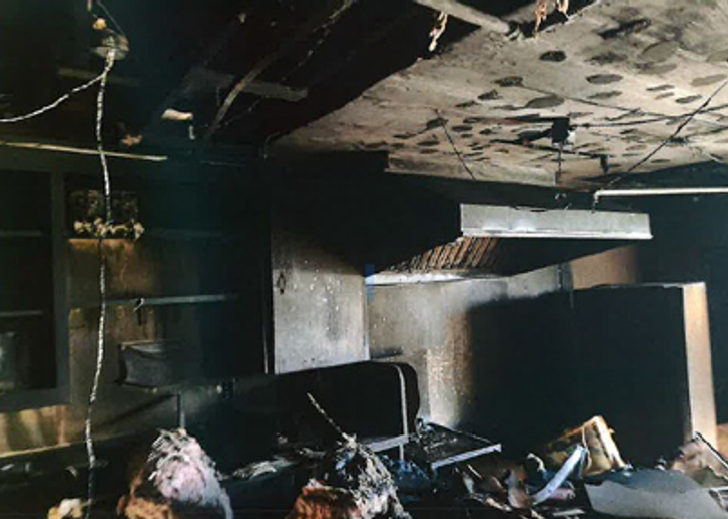BSEE: Welding and Burning Hazards
The Bureau of Safety and Environmental Enforcement of the United States (BSEE) has released Safety Alert 482 entitled Risk Based Inspection Identifies Welding and Burning Hazards.
What happened
Following inspections on production and well operation sites in the Gulf of Mexico and an analysis of compliance and incident data since 2022, BSSE discovered multiple high potential fires associated with welding and burning operations. Several critical issues were identified requiring attention to ensure the safety and integrity of ongoing operations. In one incident, evidence suggests hot slag from a cutting torch pierced the underside blanket barrier of the living quarters building. The residual heat likely caused the wood subfloor to ignite.

What went wrong
Inspections revealed the following:
- Hot work being conducted close (less than 10m) from equipment containing hydrocarbons;
- Inadequate housekeeping practices, with material like cardboard boxes found within 10m of hot work areas;
- Tools for fire prevention, such as fire extinguishers and portable gas detectors, not properly identified as necessary;
- Offshore personnel not following safe welding and hot work procedures;
- Inconsistent and infrequent training for personnel engaged in hot work and/or welding – that is persons without training or coding to the appropriate industry standard, were engaging in hot work;
- Hot work permits and Job Safety Analyses (JSAs) listing the same person to perform fire watch and perform the hot work!
What should be done
The BSEE recommendations can be summarised thus:
- Ensure there are no flammable materials or hydrocarbons or other fire hazards nearby when preparing for hot work;
- Ensure the rating, current condition, and placement of fire protection barriers mitigate the potential risk caused by hot work, including personal protective equipment;
- Ensure a heightened level of planning specific to the hazards associated with welding and burning operations – stop and think for a minute, are we doing this safely?
- Check that training and competence requirements for persons doing hot work are in place and that they meet appropriate industry standards;
- Hot work operations should be inspected by someone in charge before starting work; adequate supervision and fire watches should be in place throughout;
- Ensure that all persons involved in hot work attend and participate in pre-job JSA meetings and toolbox talks and that they fully understand what is required of them.
Members may wish to refer to:
Safety Event
Published: 22 May 2024
Download: IMCA SF 10/24
IMCA Safety Flashes
Submit a Report
IMCA Safety Flashes summarise key safety matters and incidents, allowing lessons to be more easily learnt for the benefit of all. The effectiveness of the IMCA Safety Flash system depends on Members sharing information and so avoiding repeat incidents. Please consider adding [email protected] to your internal distribution list for safety alerts or manually submitting information on incidents you consider may be relevant. All information is anonymised or sanitised, as appropriate.
IMCA’s store terms and conditions (https://www.imca-int.com/legal-notices/terms/) apply to all downloads from IMCA’s website, including this document.
IMCA makes every effort to ensure the accuracy and reliability of the data contained in the documents it publishes, but IMCA shall not be liable for any guidance and/or recommendation and/or statement herein contained. The information contained in this document does not fulfil or replace any individual’s or Member's legal, regulatory or other duties or obligations in respect of their operations. Individuals and Members remain solely responsible for the safe, lawful and proper conduct of their operations.
